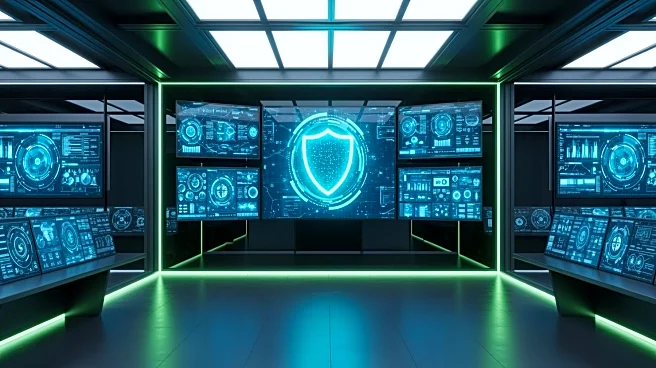What's Happening?
Chief Information Security Officers (CISOs) are increasingly concerned about AI-enabled cyberattacks, which are becoming a top priority for security leaders. According to recent research, cybercriminals
are weaponizing AI to create deepfakes, automated phishing, and AI-written malware. These developments are prompting organizations to invest in AI-driven defenses. The report highlights that autonomous AI agents are capable of executing full attack chains without human intervention, posing a significant threat to enterprise security. Security leaders emphasize the importance of using AI as a 'copilot' rather than an 'autopilot' to enhance detection and response capabilities.
Why It's Important?
The rise of AI-driven cyberattacks represents a paradigm shift in cybersecurity, where traditional defenses may no longer suffice. Organizations must adapt by integrating AI into their security strategies to effectively counter these sophisticated threats. The ability of AI to operate at 'computer speed and scale' gives attackers a significant advantage, making it crucial for defenders to leverage AI to automate routine tasks and focus on complex challenges. This shift in strategy could redefine cybersecurity practices and necessitate new skills and technologies to maintain a secure digital environment.
What's Next?
As AI continues to evolve, organizations are likely to increase their investment in AI-driven security solutions. This may involve developing advanced AI models for threat detection and response, as well as enhancing human oversight to ensure effective governance. The cybersecurity industry may see a surge in demand for AI expertise and collaboration between technology providers and security teams. Additionally, regulatory bodies might introduce new guidelines to address the ethical and operational implications of AI in cybersecurity.









